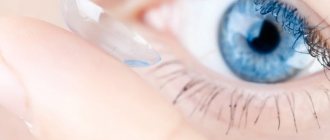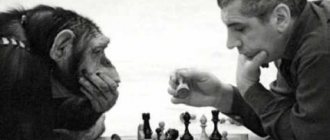The cynical placebo effect
The meaning of the “placebo effect” is quite clear.
When setting up an experiment to test the effectiveness of a treatment method, this method is applied to one group of patients suffering from a certain disease, but not to another. Then the results of health status or subjective well-being are compared for these groups.
However, both groups continue to be in the real world and, in addition to the treatment method itself, continue to be influenced by other factors. The influence of which experimenters try to exclude: either by simply eliminating them during the experiment, or by measuring their impact and making appropriate adjustments when processing the results.
So, the “placebo effect” is the cumulative influence of all those factors that were not excluded. Partly because they simply weren’t tracked.
From which it immediately follows that a universal explanation of the placebo effect in general terms is fundamentally impossible to give, since in different cases it is caused by different factors.
The experimenter has thousands of opportunities to make adjustments in setting up an experiment, and even if he is a genius, at least something will be missed. It is impossible to achieve complete neutrality of the setting conditions in practice, therefore in any experiment - especially on people - there will be a bunch of factors causing systematic or random bias, which the experimenters, although they try, will not fully track and eliminate, and therefore in the results the sum of these factors will most likely provide non-zero bias in the results.
I repeat, different factors - in different experiments. And this sum of factors will lead to some non-neutral effects in the control group too.
For example, because they will be sorry to upset a nice doctor who is carefully giving them medications, and they will lie a little about their condition in the direction of improving their well-being. Or because they are afraid that they will be kept in the hospital longer if they don’t tell a lie. Or simply out of a feeling that “it’s the right thing to do.” Or they are pleased that they are taken care of, so hypochondria recedes. Or not or, but everything at once in unknown proportions. And a hundred more options of the same.
And then statistical effects will be superimposed on this. And the experimenters also want to lie a little for the good of the matter.
And also the laboratory assistant measuring something in patients is a crooked asshole who forgot to calibrate the device before starting measurements. And another student, who was assigned to turn the laboratory assistant’s scribbles into an Excel table, confused centimeters and millimeters.
And then the experimenter himself suddenly forgets for a minute about how to correctly calculate statistics.
Well, people also have an immune system, thanks to which they often recover even without medications.
Moreover, please note that here we are not even always talking about the patient’s objective condition, but about his subjective assessment of his condition. According to which, at the same time, experimenters may also want to evaluate something objective, from which a bias in the subjective assessment will lead to a bias in conclusions about the objective.
All this in sum is the “placebo effect”: a shift from the neutral state, which in different cases is caused by different factors, and the experimenters cannot find out which ones (otherwise they would try to exclude them in the experimental procedure).
Actually, this dummy is given in order to somehow reduce the difference in the influence of unaccounted factors on the two groups. As an element of ensuring that conditions are as identical as possible.
It is also necessary that real pills and pacifiers be given out by the same doctor with an equally kind smile (and for this it would be better for him not to know to whom he is giving what). And so that the wards are the same. And hospital pajamas in the same flower. And that's all.
Unaccounted factors will not disappear from this, but at least they will act on these two groups as similarly as possible, causing approximately the same bias in the results in them.
And then a significant difference in these results will already prove that this medicine really works better than its absence. If, of course, it is possible to experimentally reject all alternative explanations (well, for example, that it was not just that we were so lucky when dividing six people into two groups of three).
However, this is too difficult to understand: in order to popularize it among the broad masses, something simpler is needed. Without this abstruse non-triviality - “all other unaccounted factors.” It is much clearer if this is interpreted as “the dummy also works, because something is going on in the brain back and forth or something like that.”
Yes, in some cases, it is quite likely that it is really the brain going back and forth, so for the sake of “simplicity of description” let’s assume that in all cases it is the brain, exactly back and forth, and this is only it and only back and forth. Otherwise, readers will get confused in these incomprehensible “regressions to the mean,” “Bayes,” “subjectivities in human relations,” and other nonsense.
Generally speaking, the very giving of these completely different factors a single and, moreover, mysterious-sounding common name, in many ways led to the emergence of the “folk placebo effect” as a specific near-medical myth: to the reader who reads about all this, it seems as if there is some kind of a strange unknown force that heals people on its own. And then it’s a matter of technology: you can attribute it to the “brain that heals the body,” you can “biofields,” you can personally intervene by God, and so on. Depending on the preferences of the narrator.
However, in any case, “scientists have proven” will be added to this: they have “repeatedly recorded the presence of a placebo effect.” This is not some kind of charlatan, but Science itself has proven it. And not “British scientists”, but scientists from all countries of the world. And you can even look at this in abundance on a variety of quite serious resources.
You can already write “popular science articles” or give lectures about this.
If in all these places instead of “scientists have proven the placebo effect” - “scientists have repeatedly recorded the influence of unaccounted factors” - this would be pure truth, but not so exciting. After all, this is no longer an unknown force leading to healing, but simply a combination of unaccounted for “hell knows what” (and each time different in composition), distorting the results.
People will not understand and will not admire. Because not only the Ren-TV channel needs its own mysticism, but also the pseudo-scientific crowd. Moreover, some kind of simple mysticism that is understandable to everyone - after all, only those who understand this very curse can admire the enchanting mysticism hidden somewhere in the depths of the matan. And it is necessary for everyone.
Therefore, now very often in articles and lectures you can see something like: “the effect of homeopathic medicines is just a placebo effect, because the pacifier itself made of chalk and sugar already has healing abilities, because the human brain is something back and forth "
Which, if you think about it, is rather beneficial for homeopaths: after all, now not only water has a memory, which makes homeopathic pills work, but at the same time the human brain also moves back and forth, which makes them work doubly. Even if you are not progressive and do not believe in the memory of water, they will still help you - through the back and forth of the brain, at least. And they are even starting to use it.
I think the “placebo effect” is such a special thing that the gods sent to Earth to very subtly illustrate how to simplify the essence of the phenomenon - “to introduce the uninvolved to the topic”, “so that the unprepared will also understand”, “to make it more exciting “—inevitably leads to a distortion of its physical meaning, which is further aggravated many times over in retellings and, in the end, allows one to “scientifically prove” some nonsense that has not been verified by anyone.
There is a certain cynicism in the fact that the very people who fought against homeopathy at the same time “popularized” the placebo effect, simplifying it for “ease of understanding” to the level of a folk effect, and as a result themselves contributed to the “evidence” of the effectiveness of homeopathy. And not only indirectly, but also very directly: “homeopathy works because the placebo effect works.”
All this at least “improves the subjective state.” And who knows, it may also improve the objective. And thus it heals.
No, really, why, if all these “what if” can be applied to “placebo”, they cannot be applied to homeopathic medicines too? And thereby justify their use? And thereby justify their sale?
In fact, there is only one answer: those whose performance has been experimentally confirmed should be considered working. Any “what if” is not working. You can come up with as many possibilities as you want for why it could potentially work (and they do), but none of these “potential explanations” changes the state of affairs: if the presence of some effect is not verified in correct experiments, then according to the fundamental principle of science we should assume that no effect.
While it has not been possible to prove that the pacifier helps in any way, the working hypothesis is: it does not help.
Can it help? Oh yes, hypothetically it can. But dancing with a tambourine is also hypothetically possible. And reading Pushkin's poems backwards. Should they also be considered effective methods in this regard?
And even if this is so, how strong is the effect? Let's compare it with the weakest painkiller? With the weakest sedative? With the opportunity to watch your favorite TV series right in the room? With the width of the window and the optimism of the landscape behind it? Unknown.
And where exactly does it follow that the observed “psychological placebo effect” is caused precisely by taking a pacifier?
There are a lot of alternative explanations.
For example, patients like that someone comes to them and seems to take care of them. And those who are not given pacifiers are visited less often.
Or, for example, those who do not take pacifiers become subjectively better, but, on the contrary, those who do not take them become subjectively worse. After all, according to the stereotype, a hospital should give pills, but if they don’t give it, then they “don’t treat.” Perhaps this feeling of discomfort would disappear if they were not given pills in exactly the same way, but a doctor would come to them and say something like “you are recovering so quickly that we stopped you from taking the pills - they are just getting in the way now.” , causing side effects."
However, the hypothesis about alternative medical rituals has already been tested, and it was found that they work just as well - they also don’t work at all, except that they reduce the anxiety of the “I’m not being treated” type.
Yes, a significant portion of the medical effect is caused by something that is not accounted for in the trials. But it does not at all follow from this that the very fact of taking a pacifier or other imitation of a medical procedure causes exactly that much. Oh no, this share is generally from all unaccounted factors in total, and from their different set in different cases.
But simplification “for the sake of understanding by the broad masses” makes the broad masses believe that this is all precisely because of a dummy. And that the effect is very strong - to the point that it can cure some diseases, and not just increase the level of psychological comfort.
- The opinion of an oncologist surgeon on the need to revise the “placebo narrative” can be found here.
What else remains to be understood about placebos?
The placebo effect is observed quite often in medicine, but there is still much we do not understand. One of the main goals of researchers is to establish the connection between the mind and body. In other words, we need to understand exactly how our expectations affect what happens inside us.
For example, it is already known that taking a placebo releases neurotransmitters and hormones in the brain. They also interact with parts of our body, causing changes (placebo or nocebo). But the specific specifics of these interdependencies are still unknown to us. What symptoms are affected by the placebo effect and to what extent? What is more effective for symptoms - placebo or drugs? Is it ethical to use placebos instead of drugs? These and a number of other questions have been facing researchers and the international community for many years. We hope to receive answers to them soon.
The editors of Royal Cheese insist that in any of the cases you should not resort to self-treatment with a placebo. Specialists should make diagnoses and prescribe treatment: doctors, therapists, surgeons, psychologists, and so on.









